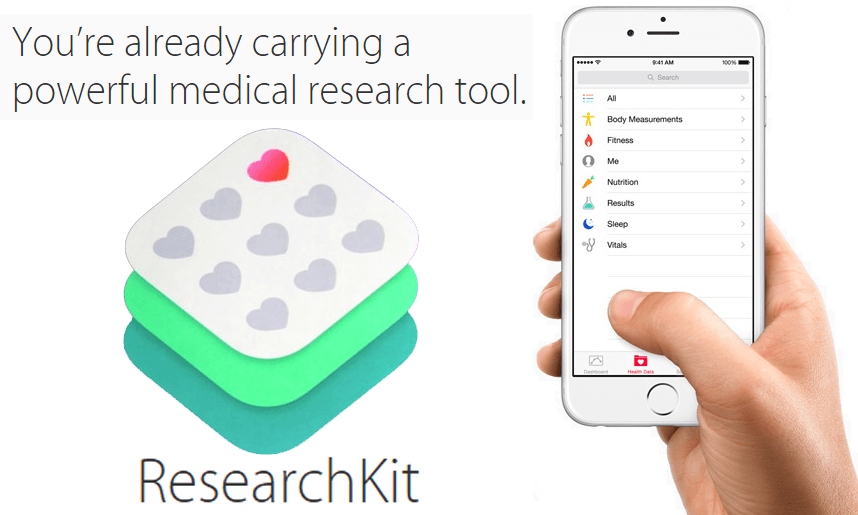
Editor’s Note: Ryan Rossier is VP of Platform Solutions at Medullan, a digital healthcare consulting firm.
 It’s no secret that getting people to engage in their health is one of our generation’s biggest challenges.
It’s no secret that getting people to engage in their health is one of our generation’s biggest challenges.
Digital health engagement, especially, is often discussed as “a huge opportunity,” but the reality is that while people are interested in their health, it’s still incredibly difficult to get them to use digital tools consistently. Enacting behavior change is still a mostly elusive process.
The potential for digital health tools comes from the fact that mobile devices and smartphones have changed functional behaviors for people all over the world. At this point, mobile device use is as ingrained in our lives as eating and sleeping. Cell phone use has become what researchers call a “functional behavior,” and not an insignificant percentage of those smartphones are iPhones. As the second largest provider of mobile devices, there are literally hundreds of millions of iPhones in use, all around the world.
With that as their base line, Apple might be our best hope for finding digital health solutions that change behaviors.
They have a massive data collection and engagement machine in the hands of millions of people. They can – and are trying to – create a health ecosystem around this device that seamlessly and conveniently connects people to their health. And if you’ve heard of, or used, HealthKit, ResearchKit, or CareKit, you’ve seen the beginnings of Apple’s plans.
HealthKit came first, launched several years ago and integrated immediately into the iPhone user experience. The framework collects user health data, including steps, heart rate, and more. It was Apple’s first step into the world of data collection.
Then came ResearchKit, a framework for apps that helps medical researchers gather robust and meaningful data. In a nutshell, ResearchKit focuses on empowering consent, surveys, and active tasks, especially for clinical trials.
And most recently, Apple has launched CareKit, a software framework for apps targeted at consumers, specifically consumers who require digital tools to help them track chronic medical conditions, symptoms, and medications.
At a basic level, all three frameworks bring to the table consistent data models and a set of UX modules (care plans, dashboards, trackers, platforms for care teams, and more) that allow organizations to accelerate their development of digital solutions for research or care settings. These frameworks are Apple’s attempt to leverage the ecosystem that it already knows and understands.
What’s important to understand here, though, is that CareKit and ResearchKit are not, as most people call them, “platforms.”
Quite literally, a platform is place where software can be executed. Platforms often however invoke the idea being a place where you BUILD things, because the platform has everything needed to do that – hardware, software, database, and other technology. Platforms help us store data, and they enable us to do something with that data.
Rather, we should refer to CareKit and ResearchKit as “libraries” or “frameworks.”
Why? Because these systems are frameworks. They do not store data. In fact, these two systems were introduced by Apple to help you do something with data. They are guidelines and widgets that can be used to go beyond storage: to display data, to capture data, and to interact with a separate data platform. In and of themselves, CareKit and ResearchKit do not have a state associated with them. Instead, they are specifications that allow us to collect and leverage data innovatively, and effectively. They allow us to have a common baseline of data elements, and a common visual design elements. They are tools that we use, in concert with other tools, to accelerate innovation and progress.
Successful digital health applications provide appropriate nudges and deliver value. And it’s important to remember that no framework can do these two things on its own, including ResearchKit or CareKit. But Apple has the potential to help innovators enact behavior change, because they are creating a baseline upon which we can build appropriate user experiences. These libraries get our feet in the door, but creating the intelligence required to help manage data and find a “sticky” engaging features – is still up to all of us. Although Apple’s “Kits” help makes it easier to get data into the ecosystem, it’s up to others to harness that data to create engaging, personalized experiences that bridge the gap between research and health care delivery.
What Apple is offering at a large scale with these frameworks is an ecosystem for digital health.
We often see “thin” solutions in the digital health world: applications that solve one problem, for one subset of patients, in one part of the world. But without a larger system, siloed solutions are taking us nowhere fast.
What Apple proposes is a way to work digital health into pre-established patterns and behaviors of mobile phone use. As users naturally pick up their phones to text before bed, they might also begin to track steps, or medication adherence, or blood pressure. Apple’s systems give us a place for solutions to live – a place where behavior is already established and can be easily monitored. Without this, our thin solutions will continue to be Band-Aids for the short term, rather than healing for the long term.
Apple alone can create this kind of an ecosystem because of their scale and their brand. And with this ecosystem could come the elusive thing we’ve all been in search of: solutions that change behavior, over time, in a value-based way.
Opinions expressed by HIT Consultant Contributors are their own.
